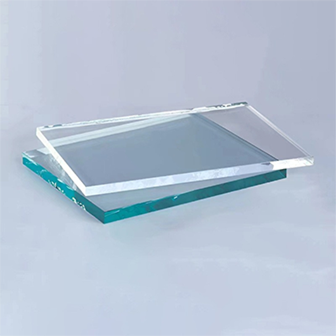Dec . 11, 2024 10:15 Back to list
Understanding the Benefits and Applications of Insulated Glass for Modern Architecture
The Advantages of Insulated Glass A Comprehensive Overview
In today’s architecture and construction landscape, insulated glass has emerged as a pivotal element in enhancing energy efficiency and comfort within buildings. As we strive to create sustainable living environments, insulated glass offers numerous benefits that not only improve the aesthetics of a property but also contribute significantly to energy conservation.
What is Insulated Glass?
Insulated glass consists of two or more panes of glass separated by a spacer and sealed around the edges to create a hermetically sealed airspace. This design serves to minimize heat transfer between the interior and exterior environments. Depending on the specifications, the airspace can be filled with argon or krypton gas to enhance thermal performance further.
Energy Efficiency
One of the most significant advantages of insulated glass is its energy efficiency. Traditionally, single-pane windows have been known to be poor insulators, allowing heat to escape during the winter and enter during the summer. In contrast, insulated glass provides much better thermal insulation through its multi-layered design. This leads to reduced reliance on heating and cooling systems, which not only lowers energy bills but also minimizes the carbon footprint of a building.
The insulating properties of insulated glass are typically measured by the U-factor, which represents the rate of heat transfer through a window. A lower U-factor indicates better insulating performance. Many modern insulated glass units come with low-emissivity (low-E) coatings, further enhancing their energy efficiency by reflecting heat back into the space while allowing natural light to enter.
Comfort and Noise Reduction
Besides energy efficiency, insulated glass also excels in enhancing comfort
. By maintaining a stable indoor temperature and minimizing drafts, insulated glass contributes to a more enjoyable living environment. Homeowners experience fewer fluctuations in temperature, leading to enhanced comfort year-round.insulated glass

Additionally, insulated glass offers excellent sound insulation properties. The airspace between the panes acts as a buffer against external noise, making it an ideal choice for buildings located in bustling urban areas or near highways. This sound-dampening ability allows occupants to enjoy a quieter, more peaceful interior environment.
Impact on Condensation
Condensation can be a significant issue for many homes, leading to mold growth and damage to the interiors. Insulated glass units are designed to reduce the likelihood of condensation forming on the interior surfaces. By maintaining a warmer surface temperature on the interior glass, these units help mitigate the conditions that lead to moisture accumulation. This is particularly advantageous in humid climates, where condensation and mold can pose serious health risks.
Aesthetic Versatility
Insulated glass is also available in various styles and designs, providing architects and designers with the flexibility to create visually appealing structures. It can be customized in terms of shape, size, and finish, allowing for a wide range of applications from residential homes to commercial skyscrapers. The clarity and transparency of insulated glass ensure that natural light floods the interior spaces, creating an inviting ambiance while maintaining energy efficiency.
The Environmentally Friendly Choice
In an era where sustainable building practices are essential, insulated glass stands out as an eco-friendly option. By enhancing energy efficiency, it reduces the overall demand for fossil fuels and lowers greenhouse gas emissions. Moreover, many insulated glass units are made from recyclable materials, supporting circular economy principles.
Conclusion
In summary, insulated glass is a game-changer in the realm of energy efficiency, comfort, and aesthetics in modern construction. Its ability to maintain stable indoor temperatures, reduce noise, and prevent condensation makes it an indispensable component of sustainable building design. As we move toward more environmentally conscious choices in construction and home design, insulated glass is sure to play a vital role in creating efficient, comfortable, and visually appealing spaces. Investors and homeowners alike should consider the long-term benefits of insulated glass, not only for their properties but also for the planet.
-
Safety and Style with Premium Laminated Glass Solutions
NewsJun.24,2025
-
Reinvents Security with Premium Wired Glass
NewsJun.24,2025
-
Premium Float Glass Line for Modern Architecture
NewsJun.24,2025
-
Low Emissivity Glass for Energy-Efficient Architecture
NewsJun.24,2025
-
High-Performance Insulated Glass Solutions for Modern Architecture
NewsJun.24,2025
-
Elevates Interior Style with Premium Silver Mirror
NewsJun.24,2025
Related PRODUCTS














